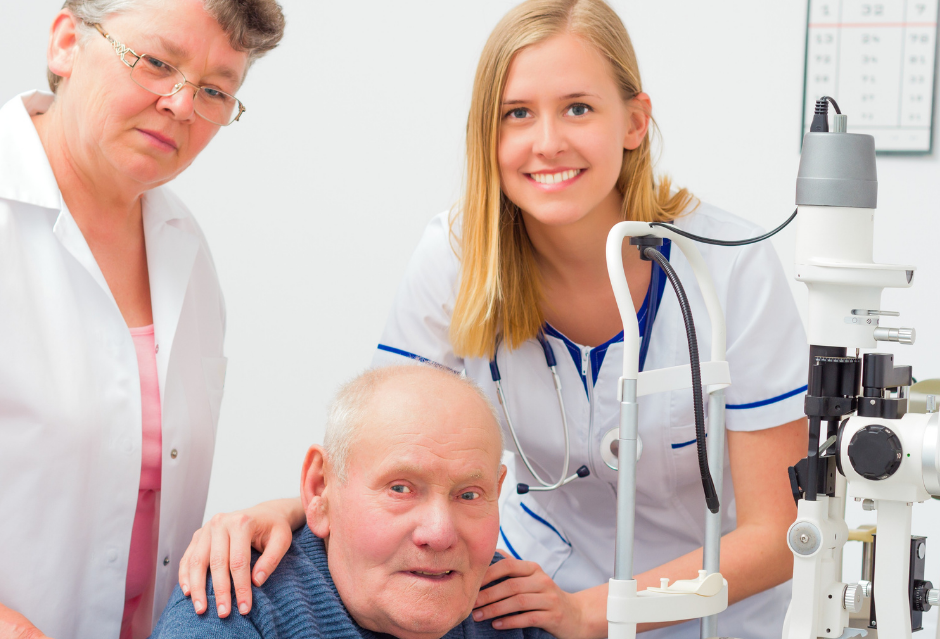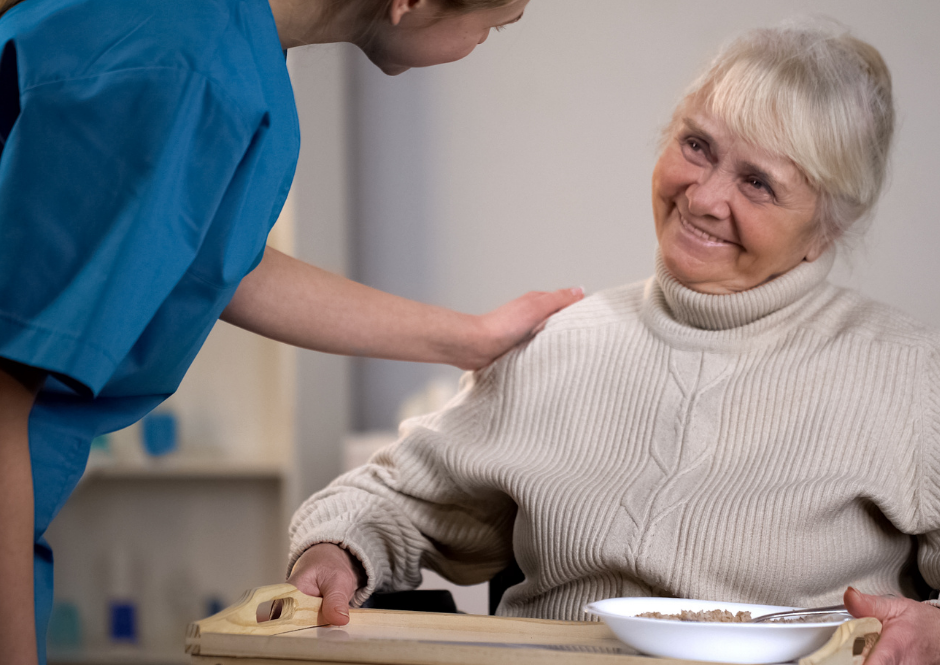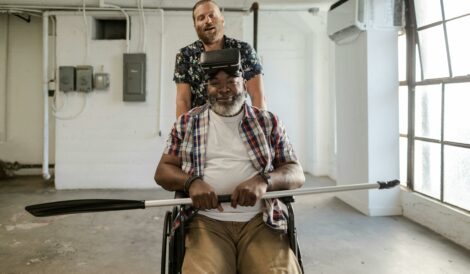What Jobs Can I Get With Certificate III in Individual Support CHC33015?
CHC33015 Certificate III in Individual Support is a professional accreditation that provides factual, procedural, and technical knowledge required to provide individualised support to people who need assistance due to disability, ageing, and other reasons.

The certification provides the skills necessary to assist needy people with routine activities such as feeding, bathing, dressing, routine housekeeping, and recreational activities.
It requires a support worker to be empathetic and passionate about helping others. CHC33015 Certificate III in Individual Support is an excellent option for someone looking for an entry-level pathway into the caregiving industry and is in high demand.
The number of job opportunities available in elderly care in Australia is expected to increase over the next few years due to the rising ageing population in the country.
In 2018, 175,900 people were employed in the elderly care industry, which is expected to cross 200,000 by 2023, indicating an increase in the demand for individual support workers.
The certification course covers several key areas relevant to providing care for elderly people and those with disabilities. It ensures that the graduate will have the right expertise to formulate an effective support plan for the elderly and people with disability.

Are you planning to enrol in CHC33015 Certificate III in individual support but not sure where the certification can take you?
Here are some potential job roles you can explore after completing the certification:
As a support worker, you can provide a range of support services to the elderly or people with disabilities to help them improve their quality of life. You can provide them with direct care under the supervision of health professionals and registered nurses. A support worker will provide services like clinical care, domestic assistance, personal care, hygiene facilitation, emotional support, companionship, mobility support, and community engagement.
With CHC33015 Certificate III in Individual Support, you can access entry-level job roles in various settings like –
- Hospitals
- Retirement homes
- Community organisations
- Group homes
- Clinics
- The private residence of patients, the elderly, or people with disabilities

The average salary of aged care or disability support workers in Australia is $57k per year or $29.25 per hour.
Nursing assistants are essential to any healthcare team as they provide required and administrative care to the ill, aged, or disabled. A nursing assistant provides primary care such as bathing, dressing, feeding, and hygiene support.
They also assist patients or elderly people with activities of daily living, such as lifting and helping them shift from their beds to wheelchairs.
The responsibilities of a nursing assistant may vary depending on the area of healthcare and the condition of the client, but the key responsibilities include the following:
- Bathing, dressing, feeding, and moving the client
- Maintaining hygiene
- Monitoring their vital signs, such as blood pressure and temperature
- Administering medications
- Scheduling appointments with healthcare providers

The average salary of nursing assistants in Australia is $65,232 per year or $34.42 per hour.
A residential care worker will provide the required support and care to children, youth, and the elderly in residential care facilities like community organisations, retirement homes, and group homes.
The primary role of a residential care worker is to help, support, and empower those in need by assisting them with their daily living activities, personal growth, and life skills.
The duties of a residential care worker will include assisting with activities of daily living, providing emotional support, physical care, recreation, and creating a safe living environment. The average salary of a residential care worker is $67,868 per year or $34 per hour.
Personal care workers support disabled, aged, and vulnerable individuals and their families. They support people who cannot care for themselves due to age, disability, or illness.
The duties of a personal care worker include
- Providing personal and emotional support
- Administering medications
- Supporting to develop new interests and hobbies
- Helping with household tasks
- Providing mobility support
- Working with doctors and therapists to provide support

Most personal care workers work in residential care facilities and private residences. However, some may also work in hospitals, clinics, and community health centers. The average salary of a personal care worker in Australia is $30 per hour or $58k per year.
Caregivers assist people with limitations due to illness, disability, and ageing with everyday tasks at home. They also assist patients with mobility, provide emotional support and physical therapies, and help improve patients’ social interactions through various activities.
The responsibilities of a personal caregiver are as follows
- Ensuring timely administration of medication
- Monitoring the health of the client under the directions of a physician or registered nurse
- Helping with bathing, dressing, and feeding
- Assisting with physical therapies
- Supporting mobility and transportation
- Providing emotional support
- Cleanliness maintenance
- Informing supervisor or physician about uncommon events
The average salary of a personal caregiver is $27.66 per hour or $53,934 per year.
Residential care workers are responsible for providing accommodation to minors without homes. They work in residential care facilities and ensure a safe and homely environment for children of every age.
As children living in out-of-home facilities are often exposed to trauma, a residential care worker provides emotional and practical support for their overall development. The job responsibilities of a residential care worker include the following:
- Providing continuous supervision to minors in residential care facilities
- Helping with cleaning, cooking, and recreational activities
- Supporting residents in their routine activities
- Providing emotional support to children
- Helping children deal with their problems and become independent
- Connecting with the families of the children and arranging family and home visits
These are just a few of the many job roles available after completing the CHC33015 Certificate III in Individual Support.
You will be able to work in various settings, including hospitals, community health centres, disability support centres, aged care centres, nursing homes, and other residential care centres apart from residences of patients and elderly people.
If you are looking to kickstart your career in individual support, enrolling in DP Training’s CHC33015 Certificate III in Individual Support (Ageing, Home and Community) / CHC33015 Certificate III in Individual Support (Disability), a nationally recognized certification, is a great way to start.
Want to enrol in Certificate III in Individual Support? Get in touch with our course advisor today!



Frequently Asked Questions
1. Are there any prerequisites for enrolling in CHC33015 Certificate III in individual support?
To enrol in this course, one must:
- be over 15 years of age
- undertake the Language, Learning, and Numeracy (LLN) test
- obtain a security clearance
- and have the technical skills to undertake an online course
2. How long does it take to complete CHC33015 Certificate III in Individual Support?
It is a self-paced certification course. However, candidates must complete all 13 units of the program and at least 120 hours of vocational placement, providing direct care within an approved disability, aged care center, or community services organization within 12 months. This course leads to a certificate 3 in aged care qualification, preparing you for a fulfilling career in the care sector.

3. What skills and knowledge will I gain from CHC33015 Certificate III in Individual Support?
A CHC33015 Certificate III in Individual Support will give you the knowledge and skills you need to provide personal care and support to clients in various settings. You will learn about basic first aid, communication and interpersonal skills, infection control, manual handling, and how to provide care for clients with specific needs, such as dementia, mental health conditions, disabilities, and other illness.





